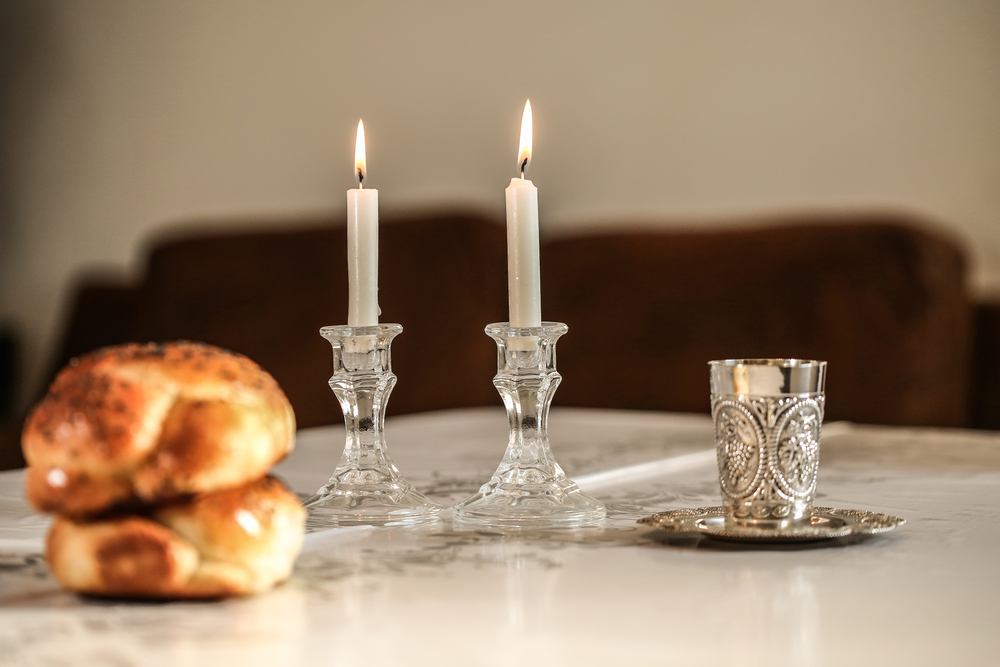"Everyone Thought I Was Crazy, So I Told Them: 'Yes, I Really Am Crazy'"
Alina Bat-El was born in Russia and grew up in a family that knew nothing about their Judaism. But in her heart, she felt: "Something is missing" and she searched for the truth. When she immigrated to Israel, she began to strengthen her faith, and today she inspires others towards Judaism.
 (Illustration photo: shutterstock)
(Illustration photo: shutterstock)"I am almost sixty," says Alina Bat-El about herself, "but I have only been living my true life in the past few years, ever since I returned to faith. The truth is, my friends and family didn’t initially understand what was happening with me. Everyone said, 'Have you gone crazy?' and I quietly replied, 'Yes, I'm crazy'."
For Alina's family, her decision to embrace Judaism seemed surprising, but she herself was not surprised at all by the transformation she underwent. "Even when I was a small child in Russia, I remember myself searching for something spiritual. I would go to school and at the end of every year, I told my mom, 'But I still haven't learned the most important thing.' Mom didn’t understand what I was seeking, and neither did I know where I was headed. But I felt all along that there was something greater and spiritual hidden from me. I always hoped that maybe next year I would learn it."
The next year came, and with it, the questions resurfaced. "Again, I learned rules of grammar, physics, mathematics, sports lessons...I was looking for something else, it was missing for me."
The word 'religion' was not even in her lexicon in those days. "I didn’t know it at all, because the Soviet regime in Russia destroyed everything connected to Judaism. Although my great-grandmother, after whom I am named, secretly baked matzot during the Soviet regime. Had they discovered it, she would have faced at least Siberia for the whole family, but I was already raised without any connection to religion."
However, some things remained in their family awareness, such as making 'hamentashen' (hamantaschen) on Purim. "I remember asking my mom once: 'If hamentashen are so delicious, why do we eat them only once a year?' Then she told me a bit, even just a snippet, about Queen Esther and Haman who wanted to kill the Jews, and Esther arranged matters so that the king killed Haman. I asked: 'And what's the connection to such delicious triangles and why do they contain prune jam?' For that, my mom had no answer. She just said it seemed to her that Haman's hat was a triangle, and that’s the matter. 'But if Haman was evil – why should I eat his hat?' I continued to nag. And that’s it, I received no answers."
Alina notes that she also heard from her mother that on Yom Kippur, it is customary not to eat. "We ourselves didn’t fast, but we knew that Jews don’t eat on Yom Kippur. In my husband’s family, who came from a similar background to mine, they did observe fasting on Yom Kippur. They also observed circumcision, which is why my son entered the covenant of Abraham our father, even though I didn’t understand the matter at all. My husband insisted, and by the way, I served as the sandak. There was no one else to do it."
"Breathed Different Air"
Alina and her husband immigrated to Israel when they already had two children. "I had one goal in immigrating to Israel - I didn’t want my children to bring non-Jews into the family; I didn’t want there to be assimilation, and I knew I couldn’t prevent it in Russia."
In practice, the life they established in Israel had no connection to religion at all, but Alina worked as a biology teacher in religious schools, and quickly her eyes were opened. Through the school, she became aware of different concepts in Judaism and mitzvot. "I felt that when I am in a religious place, I breathe better air, and it’s good for my soul," she explains. This also led her to more interest and resulted in her contacting a rebbetzin in her hometown who began to guide her.
From the rebbetzin, she also heard about the mitzvot of family purity, which she had no previous knowledge of. "I decided to start observing," she says. "At first, I did it secretly. After a few times, I prayed to Hashem and asked Him: 'Enough, I'm tired of observing this mitzvah in secret. Please help me.' Then I told my husband, and he actually said to me: 'If it makes you feel good – do what you want'." Later, she began lighting Shabbat candles. "But it wasn’t regular – sometimes yes and twice not," Alina notes.
 (Photo: shutterstock)
(Photo: shutterstock)That year, she decided to observe Passover. "The problem was, I wasn’t ready for the holiday at all, I didn’t have the utensils and had no idea how to prepare existing ones, so I decided I just wouldn’t cook, and throughout the holiday, I only ate what could be bought ready-made from the supermarket – vegetables, fruits, dairy, and such. On one of the intermediate days of Chol Hamoed, I bought an electric kettle, and then made myself tea, of course, in disposable cups."
How did your family and friends react?
"The reactions were very, very strong. I won’t tell you how many tears I shed because of my family’s reactions. They told me: 'You’re going crazy!' And I said, 'Right', then they told me: 'We won’t talk to you until you come back.' But Hashem helped me, gave me strength, and also helped me find the right figures to guide me and who I could attach myself to. I felt during that time that maybe it was hard for me, but I had a straight backbone, just like a rod."
Alina notes that throughout all stages of her progress, she continuously watched lectures on the Hidabroot website. "Initially, I enjoyed mostly the humorous and light lectures, from rabbis with humor. But afterwards, I actually connected to the deeper lectures, by Rabbi Zamir. I think that’s what is so special about Hidabroot, they have all kinds."
Moving up a Grade
Recently, Alina decided she has reached a point where she can also contribute in the area of strengthening faith ("I moved up a grade," she says with a smile), so she adopted a Russian-born woman who is drawing closer to religion and began studying regularly with her, in Russian, of course.
"I am so excited during the study," she says, "my feeling is that it’s a small token of gratitude that I can repay to Hashem. I feel like a daughter of *Hashem*, so how can one not do what Father says? How can one not repay Him with goodness?"
And she chooses to conclude our conversation with one of the many songs she writes during her times of connection with *Hashem*:
Hashem is One and His Name is One
An angel quietly said
And came to us, flew immediately
Left words: Hashem is One

